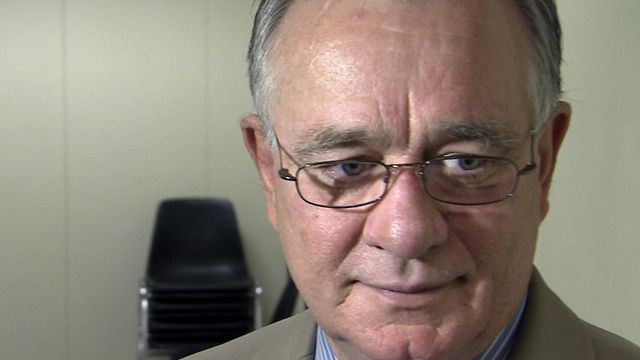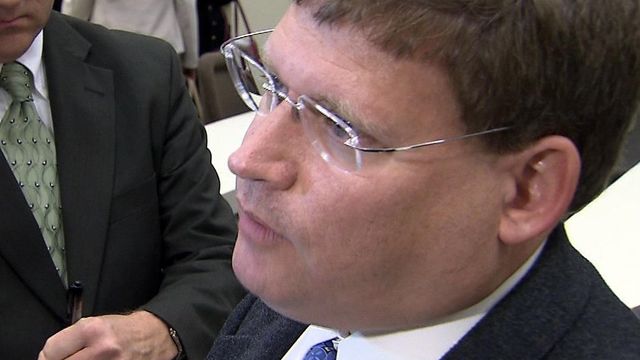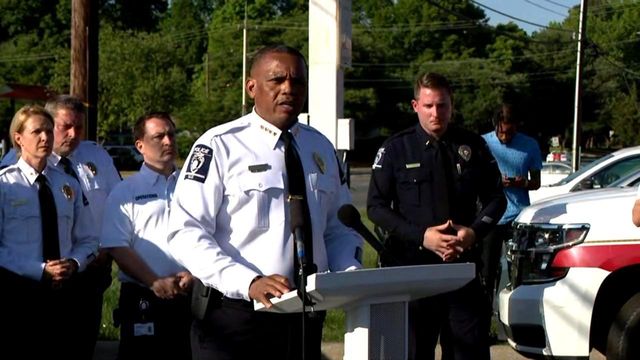Lawmakers, agency heads trade blame for shortfalls
Republican legislative leaders clashed with Perdue administration officials today over the size of funding gaps in Health and Human Services. But they say they’re confident they can address cash shortages without resorting to deeper cuts to Medicaid.
At this morning’s meeting of the Joint Government Operations commission, deputy Health and Human Services secretary Michael Watson said many of the projected savings lawmakers relied on to balance their budget have not fully materialized.
In some cases, delays in Washington are the problem. The state can’t cut services or rates without federal CMS approval, and that process can take months. Agency leaders warned budget-writers there would be a significant lag time. But projected savings for most of the cuts were calculated in the budget as if they could begin July 1st. As of today, HHS says only about half the changes have been approved. In some cases, requests haven’t even been formally submitted yet.
In other cases, though, lawmakers tried to impose cuts that violated federal rules or were simply not feasible. For example, HHS was told to eliminate “inflationary increases” in Medicaid programs like pharmacies and adult care homes, yielding $62.7 million dollars toward this year’s bottom line.
Watson says some of those increases are required by federal statutes, and cutting them would trigger the loss of federal funds, which usually match state dollars 2-to1. As for pharmacy rates, he said, the federal program, not the state, sets drug prices.
The actual savings projected from inflationary cuts, he told the panel, will be about $27 million – not quite half the savings budgeted.
Overall, Watson said, the Medicaid program is currently $139 million short on cash for the year.
Republican leaders took issue with his math, saying that their budget can’t be held responsible for “off-budget liabilities” like scheduled repayments, which account for a large chunk of the cash gap.
“We’re looking at $200 million in just cleaning up stuff from past years,” said Senate Appropriations co-chair Pete Brunstetter, R-Forsyth. He argued the actual budget shortfall is closer to $13 million than $140, blaming “unfortunate fingerpointing by the executive branch.”
Watson said even though off-budget liabilities don’t have a spending line, they’re state obligations that affect cash flow, and lawmakers were told they’d have to be paid with HHS dollars. “They’ve known about all of these,” he told reporters.
House Appropriations co-chair Nelson Dollar, R-Wake, said the off-budget items “were not presented to the General Assembly as items needing to be covered by the governor.” But, he added, lawmakers would continue to work on the problem with HHS, calling potential cuts to rates and services “the last thing on the list that we’re looking at.”
House Speaker Thom Tillis said budget-writers weren’t aware of problems with their plan.
“A lot of those cuts were made in consultation with the Secretary and the Department of Health and Human Services,” Tillis said. “Obviously, if we'd been consulted by them and said they weren't possible to begin with, they wouldn't have been in there. We’ll have to go back and look at those and react to them.”
Even before the meeting was finished, HHS Secretary Lanier Cansler sent legislative leaders this letter insisting otherwise.
"The true nature of these cuts was pointed out to you in letters from Governor Perdue dated May 27 and June 2, 2011," Cansler wrote, calling the reductions “unreasonable and unobtainable.”
Cansler said he had “hoped to be able to reach these savings,” but that further cuts to services and rates would be required to meet the budget’s spending targets. “These will be devastating cuts to North Carolina’s service providers and to our citizens in need of these medical services,” he wrote.
Tillis ridiculed the prospect of cuts, noting that the state has reserve funds that could cover the cash shortfall. “What we know today is that we’re working on about a $150 million surplus that could be appropriated for those areas where we’re coming up short,” he said.











